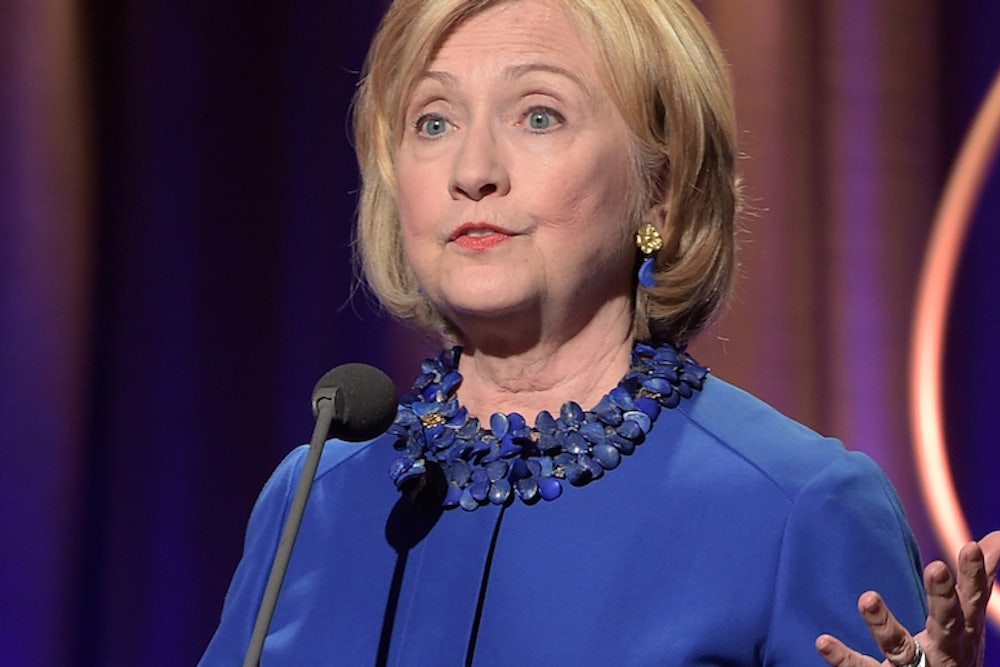When Senator Mark Pryor, the embattled Democrat from Arkansas, produced an ad last month touting the Affordable Care Act’s health coverage guarantee, a thousand Republican party operatives bombarded his campaign with the word "Obamacare." Pryor didn’t voluntarily pin a scarlet "O" on his campaign, so Republicans did it for him. Fast forward to last week, when Michigan Governor Rick Snyder raised a glass to the “outstanding progress” of his state’s Medicaid expansion, which has already enrolled nearly 400,000 new beneficiaries, and those same GOP operatives sat on their hands.
The upshot is simple. Remove the moniker, and the component benefits of the Affordable Care Act become real political assets. The moniker itself remains unpopular, though. Indeed, what remains of the campaign to repeal the Affordable Care Act is the blind faith that a rose by the name Obamacare will spontaneously putrefy. But though outright repeal has become impossible, Republicans still understand that any catchall for health care reform is a useful way to channel broader unhappiness with the president himself. The enduring unpopularity of reform as a whole is a testament to that fact, and to the likelihood that—absent an Obama favorability surge—these numbers won’t change much for the next couple years. They might never change at all.
The challenge for the next Democratic presidential nominee is thus to break the psychic link—to reshape the way the public thinks about health reform as something more than just a proxy for Obama. And whether she realizes it or not, Hillary Clinton has made a strong case that a female candidate will be better suited to the task than a male candidate.
Last Thursday, Clinton joined a Center for American Progress panel about women’s economic security, focused mainly on gendered issues like equal pay and child care. But Obamacare fits neatly into the same framework. And if a broad category of issues pertaining to gender equity can redound to the Democrats’ political advantage—as Clinton’s appearance at the event suggests—then Obamacare can, too.
As Matt Yglesias observed at Vox last week, in our political discourse, we tend to lump all “women’s issues” together into the same category as culture war flashpoints like abortion. But for public opinion purposes, this is a big mistake. In truth, the politics of things like childcare and wage equality cut very differently than the “social” issues we associate them with, and that's at least in part because they alter the distribution of income. Higher wages, family leave, subsidized childcare—all of these increase women’s income, and, thus, their economic power.
That helps explain why they're winning political issues. Transfer payments and “big government” aren’t exactly in vogue right now, but gender equity is very popular. And the key is that Obamacare doesn’t stand apart from these issues in any way.
Whether you like Obamacare or you hate it, chances are you don’t think of it as a heavily gendered initiative, like equal pay. But though the debate over Obamacare centers around nominally gender-neutral values—should the government guarantee coverage, and are the benefits too generous?—the law operates as a substantial income transfer from men to women. For the past few years, this aspect of the law has given rise to rancorous debates over contraception and maternity care. But the contraception and maternity care guarantees are both manifestations of the fact that the law prohibits gender rating. Women consume more health care than men. This is in large part by accident of the fact that men don't get pregnant and give birth. Before Obamacare, insurers sorted that out by charging women higher premiums than men. Women were therefore less likely to be able to afford insurance on the individual market than men, more financially dependent on their employers for insurance than men, and thus faced greater tensions between their familial and professional ambitions than men. Obamacare doesn't end these inequalities, obviously, but it seeks to curb them. As a result, employers and spouses are less able to interfere in women’s professional and reproductive decision making.
The similarities to, say, universal child care, are clear. Remove that cost, and women gain bargaining power in both the home and the workplace. On a cleaner political level, it helps free women from a socially imposed choice between childcare and professional advancement.
This may have sunk in to some extent already. In polling, Obamacare fares noticeably worse with men than with women.


But the disparity emerged mostly on its own, without the benefit of a figurehead—particularly a female one—driving home the point that the ACA substantially enhances women's economic security. In that vacuum, Republicans have tried ham-handedly to define Obamacare as a detriment to women. But if “Obamacare” or the “Affordable Care Act” or “health reform” can rise above water with women in a durable way, then Republicans will lose the moniker as a political weapon as well.
